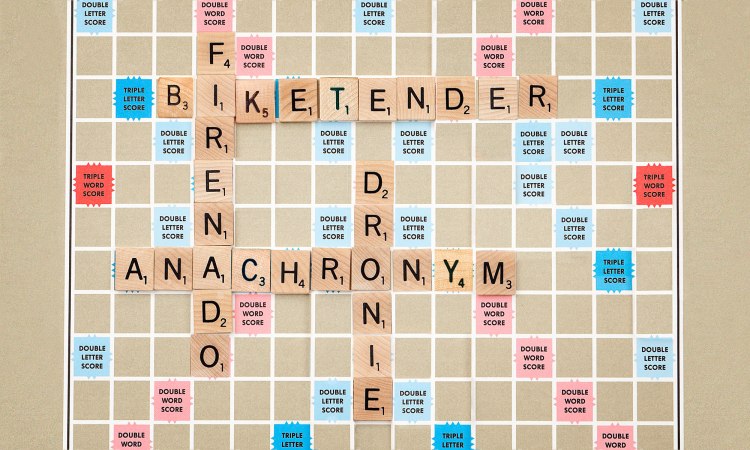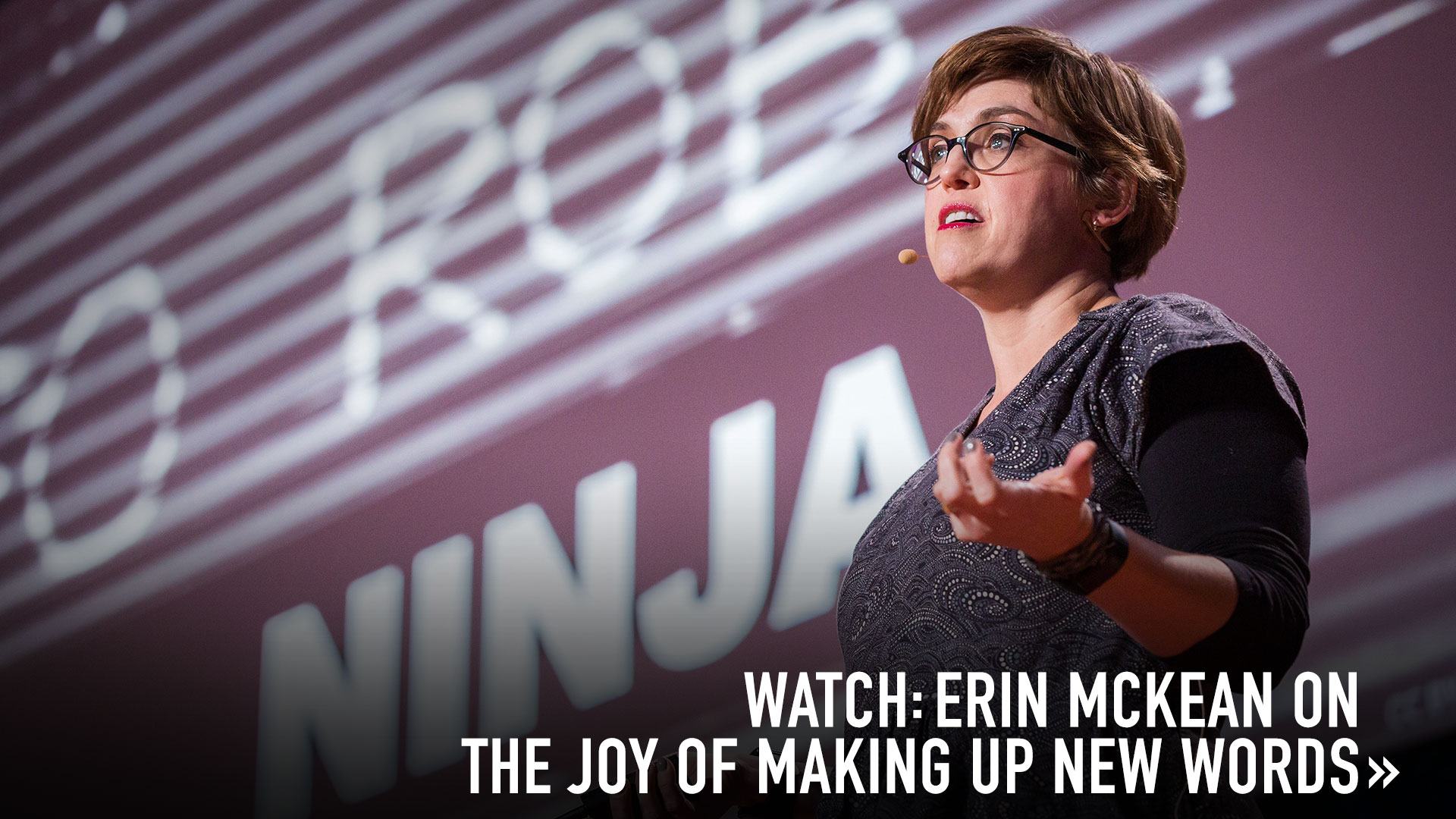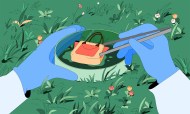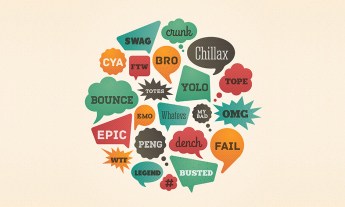
It turns out, many, many words in English don’t have a dictionary definition. Lexicographer Erin McKean and her team at Wordnik are on a mission to change that.
Did you know that 52% of the unique words of English aren’t in major dictionaries?
In 2010, Harvard researchers published findings in the journal Science that began to quantify the number of definition-less words in English. Using the Google Books Corpus (5 million books, 361 billion words) and comparing samples to major dictionaries (including the Oxford English Dictionary [OED] and the Merriam-Webster Unabridged Dictionary [MWD]), the researchers estimated that, in fact,the majority of the words used in English books are the equivalent of “lexical ‘dark matter,’ undocumented in standard references.”
Here’s why: Traditional dictionaries just can’t keep up with the size and scope of English. Mostly that’s because dictionary definitions are very difficult to write. A very talented editor may write seven entries in a day, or she may need weeks to describe just one word.
At Wordnik, we believe that every word should be lookupable. We’re currently on a hunt to find and add a million of these “missing words”. But instead of writing our own definitions (a process that doesn’t scale), we’re using text-mining and machine-learning techniques to find definitions that have already by written. We call these naturally-occurring definitions “free-range definitions”, or “FRDs” (pronounced “freds”).
Here are 20 of our favorite “missing words” and the free-range definitions we’ve found for them.
1. aeroir
“The concept of terroir will be familiar to most Edible Geography readers; recently, we also explored the idea of ‘merroir,’ or tasting place in sea salt. But what about aeroir — the atmospheric taste of place?”
Nicola Twilley, ediblegeography.com
2. agalmics
“Agalmics is an approach to (or more properly, perhaps, an alternative to) economics which acknowledges that non-scarce goods will always be copied, whether legally or illegally: ‘With our information technologies copying data is the easiest thing in the world, so it would be foolhardy to try to fight it.’”
Elliot Smith, townx.org
3. agender
“The term “agender” means to express one’s gender outside of the male and female genders.”
Chanel Adams, inquisitr.com
4. anachronym
“At first glance, it seems it may be turning into what linguist Ben Zimmer calls an ‘anachronym,’ a word or phrase that remains in usage even as behaviors change.”
Adrienne LaFrance, theatlantic.com
5. bettabilitarianism
“This is consistent with Oliver Wendell Holmes’ ‘bettabilitarianism,’ his answer to utilitarianism; every time we act, we effectively make a bet with the universe which may or may not pay off.”
Thomas Malaby, terranova.blogs.com
6. biketender
“Tomorrow and Saturday, a bicycling bartender, or ‘biketender,’ will deliver cocktails you order up via the Uber app.”
Molly Brown, geekwire.com
7. champing
“The Churches Conservation Trust in the United Kingdom has introduced a new slow-tourism escape it calls “champing”—a play on words for camping in churches.”
Jade Perry, jwtintelligence.com
8. dronie
“The latest self-portrait craze to grip the narcissists of the internet are called dronies – and involve using a remote-controlled aircraft to snap images.”
Jasper Hamill, theregister.co.uk
9. egregore
“A Christian friend pointed me to the concept of an egregore — ‘an autonomous psychic entity made up of, and influencing, the thoughts of a group of people.’”
Sarah Perry, ribbonfarm.com
10. firenado
“The swirling inferno that you see there is called a firenado, basically a tornado on the ground with smoke and flames shooting up from inside of it.”
John Roberts, cnn.com
11. hyperloop
“The hyperloop, you may recall, is a transportation concept pitched in 2013 by industrialist Elon Musk, in which passenger or cargo capsules shoot through tubes at speeds of up to 750 miles an hour.”
Bruce Upbin, forbes.com
12. letterlocking
“She has coined the word ‘letterlocking’ to describe methods of folding and gluing pages to deter snooping.”
Eve M. Kahn, nytimes.com
13. overchoice
“In Future Shock, [Alvin] Toffler coined the term “overchoice”, predicting that consumers would face an increasing range of choices as sellers continually try to differentiate themselves.”
Steve Coulson, yesbutnobutyes.com
14. philanthropreneur
“In practice, the philanthropreneur applies practical and entrepreneurial approaches to the pursuit of philanthropy.”
Rajesh Chandy, theguardian.com
15. sneckdown
“A sneckdown is a curb extension caused by snowfall that shows where a street can be narrowed to slow cars + shorten ped crossing distances.”
@jen_keesmaat
16. sordophone
“Earlier today, we asked for help coming up with a word for that thing where a word is innocent in its native language, but sounds like a dirty word to foreign speakers. And not only did we come up with a word — “sordophone” — but also, a pretty impressive list of words that travelers should be careful about saying.”
Charlie Jane Anders, io9.com
17. sprummer
“Mr Entwisle has proposed “sprummer” – the season between spring and summer – and “sprinter” – an early spring.”
Ben Schott, nytimes.com
18. supertasker
“The term “supertasker” is given to individuals able to successfully accomplish two or more tasks at once — a quality possessed by less than 2.5 percent of people.”
Josh Bennett, dailyutahchronicle.com
19. typogram
“A typogram is a word that, through the manipulation of the letterform itself, illustrates the meaning of the word.”
Ali Gray, iamalidesign.com
20. zemblanity
“Zemblanity, the opposite of serendipity, the faculty of making unhappy, unlucky and expected discoveries by design.”
William Safire, The Right Word in the Right Place at the Right Time
In our hunt for a million missing words, we may find more than a few that are “madeupical” or nonce formations (words which are coined by one person, but which never get more widely used). But we think every word deserves a chance to be better known!
Featured image by Dian Lofton/TED, photos by iStock.
















